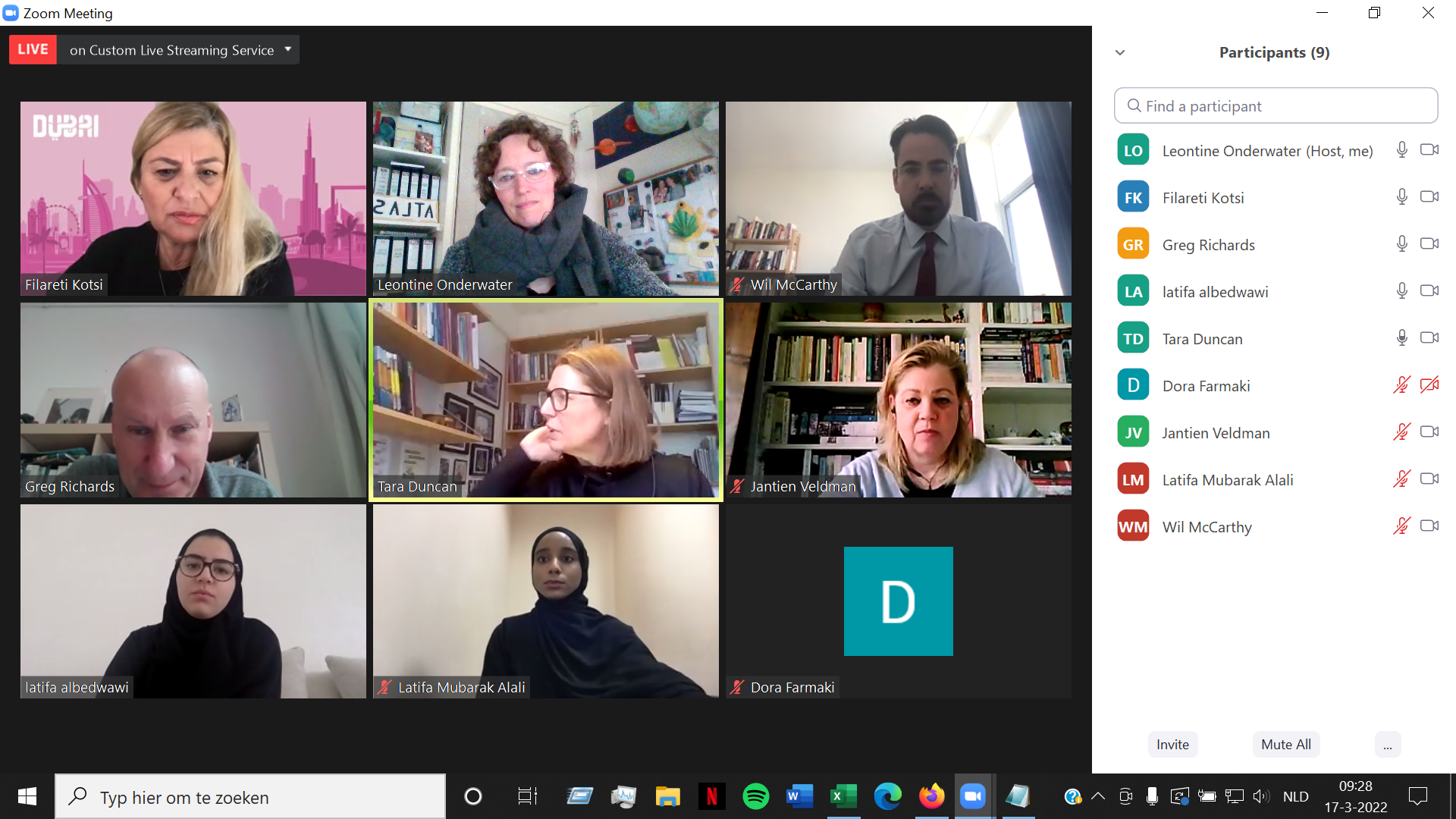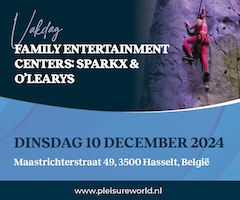Internationalising Tourism and Leisure Education
A historical perspective and the role of ATLAS
The internationalisation of education has become controversial in the Netherlands, with calls to limit the number of international students and higher education courses in English. These negative attitudes reflect the success of Dutch international education, with 122,287 international students accounting for 15% of the total (Nuffic, 2023). Although programmes offered exclusively in Dutch have declined in recent years, the number of English-only bachelor’s programmes has been relatively stable since 2018. While growth rates have slowed, political debate on limiting international students continues. A proposed Education Bill requires two-thirds of content for standard bachelor’s degree programmes to be in Dutch.
Greg Richards is professor of Placemaking and Events at Breda University of Applied Sciences and co-founder and former board member of ATLAS.
The start of Erasmus
This is a far cry from the situation when the Association for Tourism and Leisure Education and Research (ATLAS) was founded in 1991. ATLAS links together universities, research organisations and students, helping to promote international education and research. The creation of ATLAS was essentially a product of the expansion of international education in Europe during the 1980s. The Erasmus programme started in 1987, and was an immediate success, creating student and staff exchange links across the continent. With the fall of the Berlin Wall in 1989, Erasmus also expanded rapidly into Central and Eastern Europe, offering the perspective of an open education market and free mobility for students and staff. With a rapid expansion in international students and staff mobility, the EU wanted to establish structures to guide the development of this new, open field. The Erasmus programme began to fund activities to promote educational exchange, including the establishment of Thematic Networks.
The growth in international education and exchanges also coincided with the emergence of tourism and leisure education. In UK universities, tourism courses appeared in the late 1980s. In the Netherlands, the Dutch Scientific Institute for Tourism (NWIT) was launched at what is now BUas in 1966. Tilburg University also began offering leisure courses in the mid-1980s, and Wageningen University began to offer courses in recreation and tourism. Tilburg and Wageningen were early partners in the Winter University programme, offering an intensive course in leisure studies for students in the Erasmus programme. In Breda a Master in European Tourism Management was launched in 1990, and leisure studies was added in 1994.
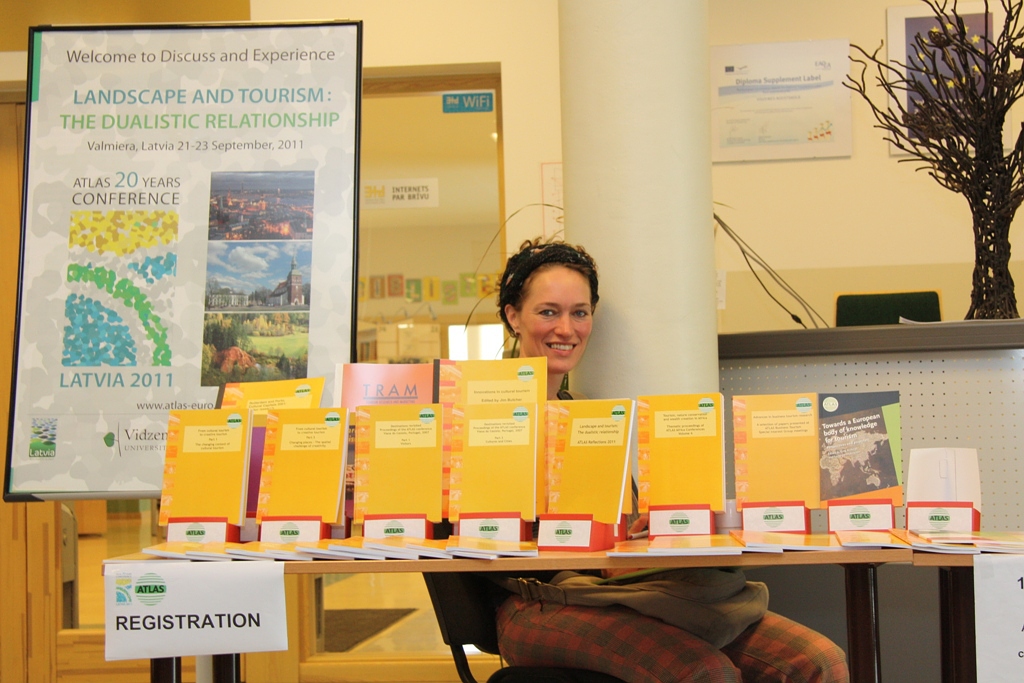
The emergence of ATLAS
Universities running Erasmus exchanges and the Winter University programme, including partners from the UK, Poland, Belgium and Spain, met regularly to discuss collaboration. Out of these discussions ATLAS emerged as an educational platform, although it took off in 1991 with a European Union project on cultural tourism (Richards, 1996). ATLAS rapidly expanded during the 1990s, particularly through international research collaboration. The first ATLAS annual conference on ‘European Tourism and Leisure Education: Trends and Prospects’ was held in Tilburg, the Netherlands in December 1994 (Richards, 1995). This was essentially the launch conference for ATLAS, and attracted around 100 delegates from many different European countries.
Conferences
Since then, ATLAS has staged 31 annual conferences (the 31st at BUas in Breda in June 2024). The Annual Conference has always been held in Europe, where the majority of members are based. But the success of the network also created a demand for more international events. The first ATLAS Asia conference was held in Bandung, Indonesia in 1999 on the theme ‘Entrepreneurship and Education in Tourism’. This was followed by the first ATLAS Africa in Mombasa, Kenya in 2000, the first ATLAS Latin Americas Conference in Brazil in 2017 and the first ATLAS Middle East conference in Dubai in 2018. These ‘regional conferences’ allow members in different parts of the world to engage with the wider ATLAS network and to discuss subjects of particular regional relevance. Sessions are also often held in local languages, helping to support linguistic diversity.
A growing number of ATLAS members have become involved in Erasmus projects analysing different aspects of international education.
Special Interest Groups
Specific areas of education and research have also been highlighted through the work of the ATLAS Special Interest Groups (SIGs). The first ATLAS SIG was the Cultural Tourism Research Project, founded in 1991 (and still running!), followed by the Gastronomy and Tourism SIG in 2002 and the Business Tourism SIG in 2003. SIG meetings are usually smaller scale and provide a forum for in- depth discussions around a single subject. As interest in new areas of education or research is growing, new SIGs are created, only to disappear again when interest wanes. Among the SIGs that have disappeared are Backpacking, Religious Tourism and Pilgrimage, and Spa and Wellness. The SIGs have been extremely active, organising 76 meetings up to February 2022.
Webinars
The first ATLAS Webinar on ‘Tourism in the Shadow of Neoliberalism’ was held in October 2017, well before the pandemic made webinars a mainstream option. There were 17 online events during the pandemic, and hybrid elements have continued to be added to physical events, as at the conference in Austria (2023). During the pandemic many events also went online, which suddenly allowed people not usually able to participate in ATLAS events to take part. These included many students from Europe and beyond, and students also increasingly helped to organise events, such as the webinar on mega-events in 2022. Specific provision has also been made for international postgraduate meetings at the ATLAS conference, which now traditionally include a PhD seminar on the first day.
Publications
One important area of ATLAS activities in the early years was the production of physical publications. Researchers, particularly those from outside Europe, were very keen to have accessible publication opportunities, particularly before the Internet made research more widely available. ATLAS produced books covering a wide range of tourism and leisure issues, such as cultural tourism, sustainable tourism, heritage, tourism and leisure education, entrepreneurship, gastronomy, youth travel and backpacking, SMEs, medical tourism, destination management, and events. This reflected the broadening of the tourism and leisure curriculum from general management or sociology towards more specialised areas of knowledge.
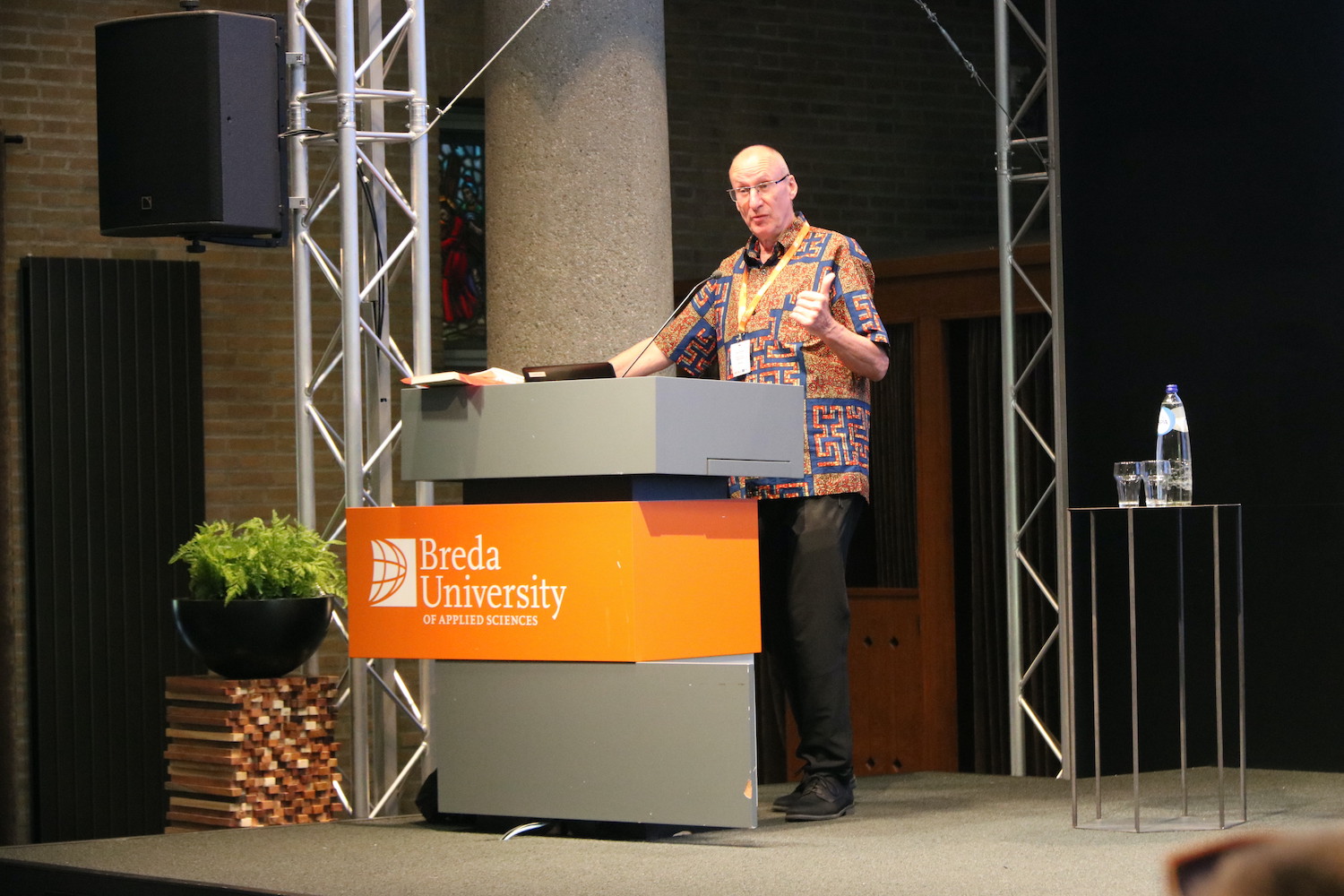
Shift to little leisures
This shift reflected a move from what Ken Roberts (2021) labelled ‘big leisures’ towards ‘little leisures’. One ‘little leisure’ that became particularly important for ATLAS was events, as event education boomed in Europe and elsewhere. Events were increasingly used to stimulate economic and social development, image change and tourism, leading to the development of ‘eventful cities’ (Richards and Palmer, 2010). Research by the ATLAS Events Group focused on the social experience of events, with comparative research on events such as Carnival (Richards and Marques, 2024).
The emphasis of ATLAS publications moved from books towards journals, as university staff became increasingly pressured to publish peer-reviewed papers. ATLAS facilitated this shift by launching the ATLAS Review in 2016, an accessible journal outlet for ATLAS members, particularly those outside Europe. The ATLAS Review includes many papers from the ATLAS Africa conferences, as well as issues on well-being, destination dynamics, gastronomy, and the impact of Covid-19.
Although ATLAS has shifted towards research, educational activities have also been strengthened by the new Education Special Interest Group. Many ATLAS members have become involved in Erasmus projects analysing different aspects of international education. One example is the CULTSENSE Project, which has developed tools for studying cultural sensitivity in tourism, including cases on the use of gastronomy as local identity, relationships between locals and tourists in Amsterdam’s Red Light District and Finnish saunas (Marques and Oliveira, 2023).
Universities provide a local focal point for education and research, while at the same time developing global links.
Trends in international education
ATLAS has continued working with the World Youth Student Educational Travel Confederation (WYSE) on youth travel and international education. This has helped to support the longitudinal New Horizons research programme, which has been running since 2002. The 2023 surveys indicated a rapid post-pandemic youth travel recovery, but also highlighted the dramatic impact of Brexit on UK higher education (WYSE, 2023). UK study travel fell by 29% in 2019, just before the pandemic. This drop is linked to a post-Brexit fall in EU/EEA students. EU and EEA students now pay overseas fees following Brexit. In the decade to 2019, UK international tourism arrivals grew by 31%, compared with a global tourism increase of 65%. Youth tourism was particularly hard hit, as both inbound and outbound youth travel fell after the Brexit vote in 2016.
Brexit has not only made exchanges more complex, but is undermining the economic basis of some universities, with Goldsmiths experiencing 17% cuts. Brexit may also affect ATLAS, which has always had a strong British presence. Many UK universities are now looking for ways to replace European contacts severed by Brexit. That is hard to do alone, but collaborative platforms such as ATLAS can make the job easier.
ATLAS has steadily become less European and more international. Regional networks in Africa, the Middle East, Latin America and Asia are staging more events and activities, also through virtual networking. Global links have also been strengthened by new international franchise operations. This is most evident in the Middle East, where many international universities have outposts. Middlesex University in Dubai and Stenden in Doha have been instrumental in growing ATLAS activity in the region. Stenden also operates in Doha (Qatar), Bangkok (Thailand), Port Alfred (South Africa) and Kuta Utara (Bali). It remains firmly rooted in the northern part of the Netherlands where we are based, while at the same time maintaining a strong international focus. Many ATLAS universities now provide a local focal point for education and research, while at the same time building global links.
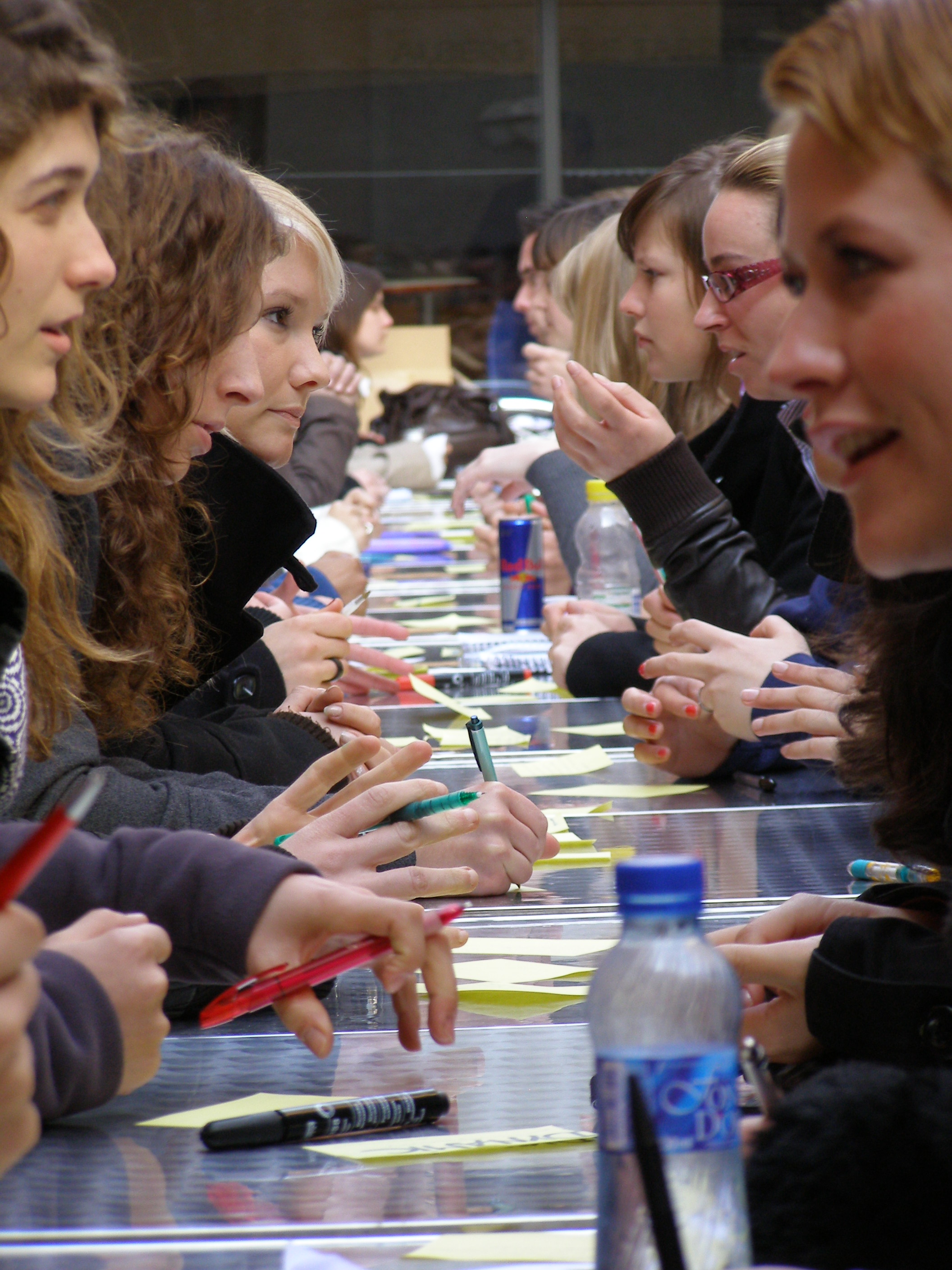
Supporting its mission of knowledge development, ATLAS has been innovative in key aspects of tourism and leisure education. These include cultural and creative tourism (supported by the ATLAS Cultural Tourism Group), youth travel and volunteering (supported by WYSE), Sustainability (which has been an area of ATLAS’ work since the 1990s), Gastronomy (led by the ATLAS Gastronomy SIG), and Events (supported by numerous SIG meetings).
Future trends
In the future we will see international education continuing to expand despite the current parochialism of some countries. A growing area of activity is international comparative data gathering, which is increasingly being carried out with the involvement of students. For example, the Stretch Blended Intensive Programme launched at VIVES University in Belgium has expanded to include universities in Finland and the Netherlands. Students have collected data for a comparative study of the European Capital of Culture, which also feeds into their education. As research time for staff becomes more pressured, such student-based research projects are likely to expand in the future.
This collaboration may also extend to ‘citizen science’ programmes. The European Union Citizen Science platform (https://eu-citizen.science/) lists over 300 projects engaging people in data collection on a wide range of subjects. To date, however, these projects do not include tourism or leisure, so there is clearly a gap to be filled there. Citizen science projects could effectively be used to explore the meaning and content of leisure and tourism practices, including filling some of the gaps between rounds of leisure participation research, which are often only conducted at ten-year intervals. This is another area where comparative international research could be very revealing.
The extent to which international education will survive the current political pressures is obviously the key question for the immediate future. Many universities are resisting government pressure to reduce international student numbers, not only because this will reduce their income, but also because it will impoverish their learning environment. Supporting international students will become increasingly important in the future, and this is one of the factors behind the growth of the ATLAS Student Section. Let’s hope this continues.
Sources
- BUas (2024) Discover our History. https://www.buas.nl/en/about-us/profile/history
- Marques, L., & Oliveira, M. (2023). Promoting Cultural Sensitivity in Higher Education: An Educational Approach to Sensitizing Young Travellers for Local Cultures. Evolving Pedagogy. URN: http://urn.fi/urn:nbn:fi:jamk-issn-2489-2386-28 DOI: 10.5281/zenodo.10051659.
- Nuffic (2023) Incoming degree mobility in Dutch higher education 2022-23. https://www.nuffic.nl/sites/default/files/2023-06/incoming-degree-mobility-in-dutch-higher-education-2022-2023.pdf
- Richards G. (ed) (1995) European Tourism and Leisure Education: Trends and Prospects. Arnhem: ATLAS
- Richards, G. (1996) Cultural Tourism in Europe. CABI: Wallingford.
- Roberts, K. (2021). Still speaking to ourselves: Leisure studies in a wilderness of multiple modernities. World Leisure Journal, 63(2), 152-163.
- Richards, G. & Morrill, W. (2023) Youth travel and Brexit. WYSE News, April 21. https://www.wysetc.org/2023/04/youth-travel-and-brexit-2023/
